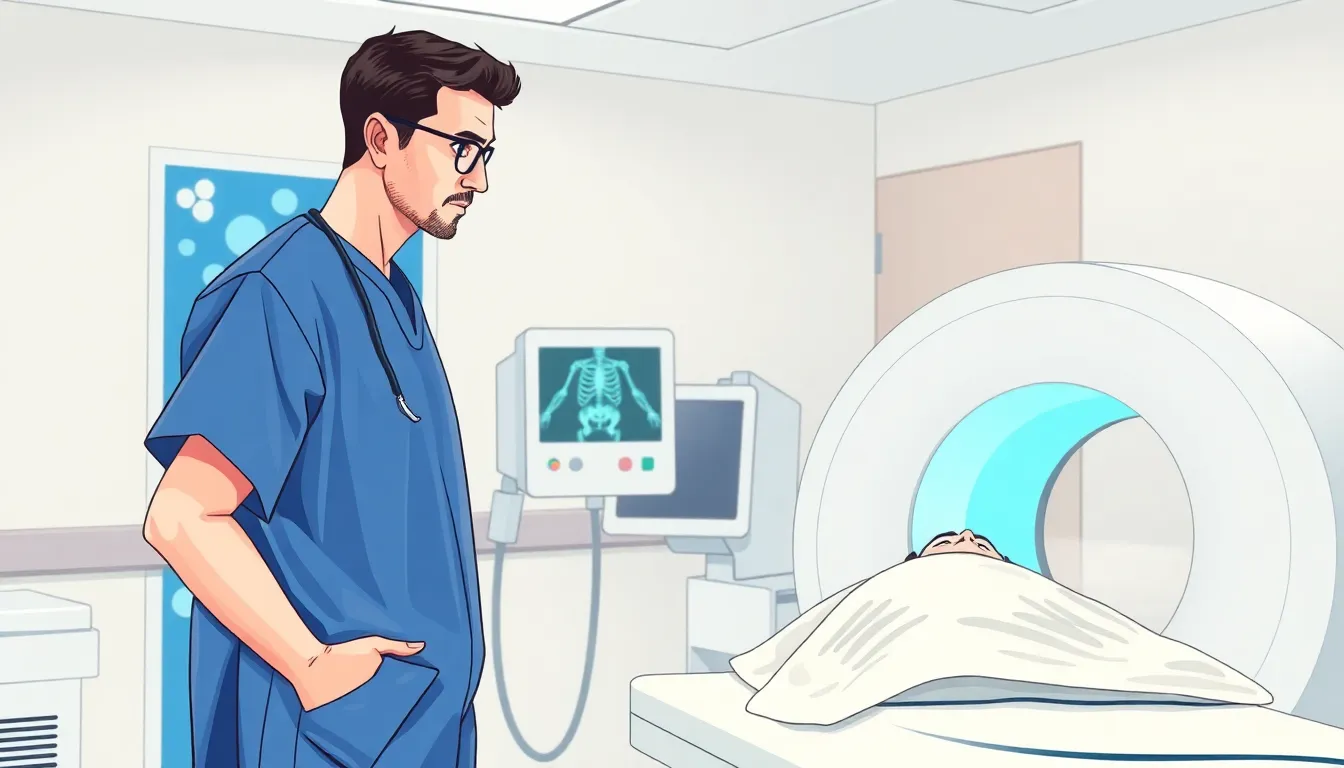Table of Contents
ToggleIf you’ve ever wondered what it’s like to see through walls—without the superhero cape—becoming an X-ray tech might just be your calling. These skilled professionals play a crucial role in healthcare, helping doctors diagnose and treat patients with the power of imaging. And guess what? There are X-ray tech jobs waiting for you right in your neighborhood!
Overview Of X-Ray Tech Jobs
X-ray technicians play a vital role in the healthcare sector. These professionals operate imaging equipment to create diagnostic images. They assist physicians by providing critical information that aids in patient evaluation and treatment.
Job opportunities for X-ray techs are abundant across various healthcare facilities. Hospitals, outpatient centers, and diagnostic laboratories frequently seek skilled technicians. In addition, positions often arise in private practice settings, increasing the employer options for job seekers.
Certification and education are essential for aspiring X-ray technicians. Completing a relevant program, typically lasting 1 to 2 years, provides the necessary training. Credentialing through organizations such as the American Registry of Radiologic Technologists enhances employability and professional credibility.
Meeting specific responsibilities is part of the X-ray tech role. Responsibilities include preparing patients for procedures, explaining imaging processes, and ensuring quality images. Technicians must precisely handle the equipment and adhere to safety protocols to protect patients and themselves from unnecessary radiation exposure.
Salary expectations reflect the demand for this profession. According to the Bureau of Labor Statistics, the median annual wage for radiologic technologists was approximately $63,710 in 2022. Geographic location and facility type often influence salary variances in this field.
Overall, X-ray tech jobs offer a rewarding career path for individuals interested in the medical sector. The combination of technical skills and patient interaction makes this position both challenging and fulfilling.
Job Locations

X-ray tech jobs are available in various settings throughout local areas. Hospitals, outpatient centers, and private practices often seek skilled X-ray technicians.
Finding Local Opportunities
Local hospitals frequently post job openings on their websites. Outpatient imaging centers and private practices also advertise positions on social media and community bulletin boards. Connecting with local healthcare organizations can lead to networking opportunities. Many technicians find success by attending career fairs or job expos in their regions. Online job boards often list openings, making it easy to apply for positions nearby.
Online Job Search Strategies
Using job search engines like Indeed or Glassdoor helps in finding X-ray tech positions. Setting up alerts for specific keywords allows candidates to receive notifications when new jobs arise. Utilizing relevant filters, such as location and experience level, narrows the search effectively. Joining online forums and communities dedicated to radiologic technology provides insights into available positions. Following industry-specific LinkedIn groups enhances visibility to potential employers and connections.
Qualifications And Skills Required
X-ray technicians require specific education and certifications to qualify for job opportunities in the healthcare field.
Educational Requirements
A relevant program in radiologic technology often spans 1 to 2 years. These programs typically culminate in an associate degree or diploma. Coursework may cover anatomy, patient care, and radiographic techniques. Hands-on clinical experience is crucial for mastering equipment usage and patient interaction. Graduates emerge prepared to operate X-ray machines effectively while understanding the principles of radiation safety.
Certification and Licensing
Certification plays an essential role in an X-ray technician’s career. Obtaining certification from the American Registry of Radiologic Technologists significantly enhances employability. This certification demonstrates proficiency and adherence to high standards of practice. Many states also require licensure, necessitating passing additional examinations or meeting specific criteria. Keeping certification current through continuing education ensures technicians remain knowledgeable about advancements in imaging technology.
Salary Expectations
X-ray technicians earn varying salaries based on location, experience, and type of facility. In 2022, the median annual wage for radiologic technologists reached approximately $63,710. Salaries for entry-level positions often start around $47,000.
Experienced technicians in metropolitan areas typically see higher earnings, with some earning upwards of $80,000 per year. Factors influencing salary include local demand for X-ray techs and the specific healthcare facilities. For instance, hospitals generally offer higher pay than outpatient centers or private practices.
Benefits can significantly enhance overall compensation as well. Many employers provide health insurance, retirement plans, and paid time off. Additional certifications may lead to salary increases, as specialized skills become more sought after.
Wage growth trends indicate rising demand for radiologic technologists, particularly in urban areas. Job growth projections from the Bureau of Labor Statistics forecast a 9% increase in employment opportunities for radiologic technologists through 2031. Technicians who stay updated with technological advancements can further secure their positions and salary potential.
Waiting for advancements in imaging technology can affect job prospects, making continuous education crucial. State licensure requirements often also impact salary ranges. Networking in the healthcare industry can reveal opportunities for better-paying positions.
Career Advancement Opportunities
Advancement in the field of X-ray technology offers numerous pathways for those seeking to enhance their careers. Taking on specialized roles, such as MRI technologist or CT technologist, allows professionals to acquire advanced skills and increase their earning potential. X-ray technicians can also explore management positions in radiology departments, overseeing staff and ensuring high standards of patient care.
Continuing education plays a vital role in career advancement. Participating in workshops, seminars, and certification programs helps technicians stay current with the latest technologies and practices. Organizations such as the American Registry of Radiologic Technologists offer various certifications that can lead to higher-paying job opportunities.
Networking within the healthcare community can accelerate career growth. Building connections with industry peers and attending professional conferences often opens doors to new employment options. Engaging in online platforms dedicated to radiologic technology also contributes to career visibility, making it easier for them to find job openings and learn about advancements in their field.
Mentorship programs provide support for X-ray technicians aiming to advance their careers. Pairing with experienced professionals can offer guidance on navigating career paths and developing specialized skills. Utilizing these resources enhances the ability to climb the professional ladder.
Job growth projections indicate a 9 percent increase in employment opportunities for radiologic technologists through 2031. This expansion underscores the need for continuous education and networking efforts. Pursuing additional certifications or specialties not only improves job security but also positions them for leadership roles in the rapidly evolving healthcare landscape.
X-ray tech jobs present a promising career path for those interested in healthcare and technology. With a growing demand for skilled professionals in various settings, opportunities are plentiful.
Aspiring technicians can enhance their employability by completing relevant programs and obtaining certification. Networking and utilizing job boards are effective strategies for finding local positions.
As the field continues to evolve, staying current with advancements through continuing education is essential. This career not only offers financial rewards but also the satisfaction of contributing to patient care and well-being.




